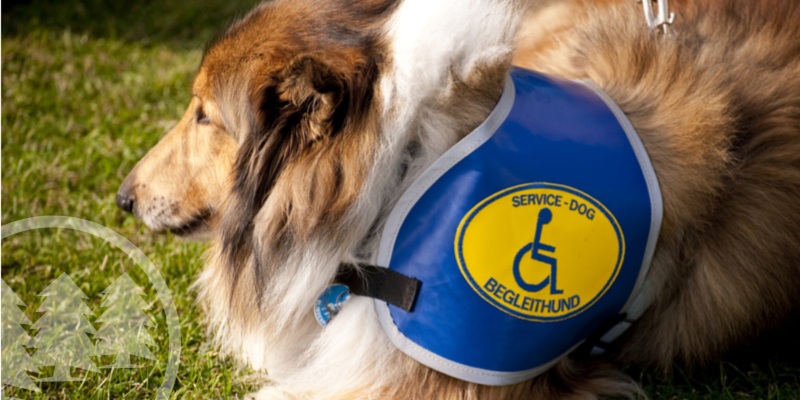
If you have an HOA pet policy, there can be a lot of tension or uncertainty when someone with a service animal wishes to live in the community. To ensure that the HOA board handles the matter appropriately, here’s everything you need to know about service animals in HOAs.
What Does the Law Say About Service Animals in HOAs?
The Fair Housing Act of 1968 (FHA) protects people from discrimination when renting, buying, or financing a house and when pursuing other housing-related activities. Under this federal law, people with disabilities can request reasonable accommodations from their association. This includes the right to own or use a service animal.A service animal is a reasonable accommodation because they perform services in order to assist a person with a disability. This includes guiding a person who is blind, calling for help when a person has a seizure, and calming a person who has PTSD from a panic attack.
The FHA supersedes any rule or regulation that HOAs might have regarding pets. Thus, HOAs cannot refuse a homeowner’s request for a service animal. You also cannot use your ‘no pet policy’ to deny a potential homeowner who has a service animal.
Service Animals vs. Emotional Support Animals in HOAs

Emotional support animals do not require specialized training in order to provide emotional support for their owners. Also known as therapy animals, their purpose is to help alleviate the disability symptoms or effects of their owner. Emotional support dogs may be taught to remind owners with mental illness that it’s time to take their meds.
Under the Americans with Disabilities Act (ADA), service animals and emotional service animals do not have the same rights. Both North and South Carolina follow the ADA, which permits the use of service animals in public areas and public housing. According to emotional support animal laws in NC and SC, any animal that is not a service animal can be refused entry in such places.
Housing communities are private properties so they are not under the jurisdiction of the ADA. Associations must follow the FHA, which provides protection to both service animals and emotional support animals. People with emotional support animals also have equal access to housing. This also supersedes your HOA pet policy.
Documentation for Service Animals in HOAs

However, a request for documentation can be a standard practice to deter non-disabled residents who are just trying to skirt around your HOA pet policy. (Note: intentional misrepresentation of a service animal is illegal and punishable by law)
Homeowners with service animals or emotional support animals can provide a variety of documents such as proof of disability benefits, verification from a medical professional or a licensed therapist, and service animal certification. In places like North Carolina, people with disabilities can also register their service animals with the Department of Health and Human Services for verification.
The HOA cannot ask specific questions about a person’s disability during the application or verification process. The board cannot ask prospective owners what their disability is if they need to take medication and other similar inquiries.
Can You Impose HOA Service Animals Rules?

On the other hand, there are other rules that are off-limits when it comes to service animals in HOAs. You cannot ask for additional fees or security deposits in exchange for letting the service animal in your community. HOA pet restrictions such as breed, size, or weight also cannot be imposed on service animals.
Service animals should be allowed on all premises of the community. The HOA cannot prevent them from entering or staying in communal areas such as the clubhouse, park, and pool. If a service animal damages community property, the HOA can charge the responsible resident for repairs or replacements.
Are There Exceptions for Service Animals in HOAs?

An HOA can deny service animals that pose a threat to the health and safety of the other community members. This is a valid exemption if no other accommodation can reduce the problem. An example would be if you’re dealing with an unruly service dog that constantly jumps on people and a leash is unable to control him.
An HOA can also deny service animals that cause substantial damage to property, especially if no other accommodation can reduce the problem. For example, you might be dealing with a service dog that destroys flowers and plants even after installing fences.
Establish Guidelines for Service Animals in Your HOA
Since there are laws regarding service animals in HOAs, you should tread carefully when dealing with these requests. If the HOA makes a wrong move, it could be held liable in court. It’s important to have some guidelines in place so that you can have an unbiased approach. Each prospective homeowner should have the same screening procedures and requirements.To ensure consistency, you can ask your HOA management company to handle service animal requests and homeowner applications. An HOA manager will have expertise in these matters and can handle all the requests professionally.
















